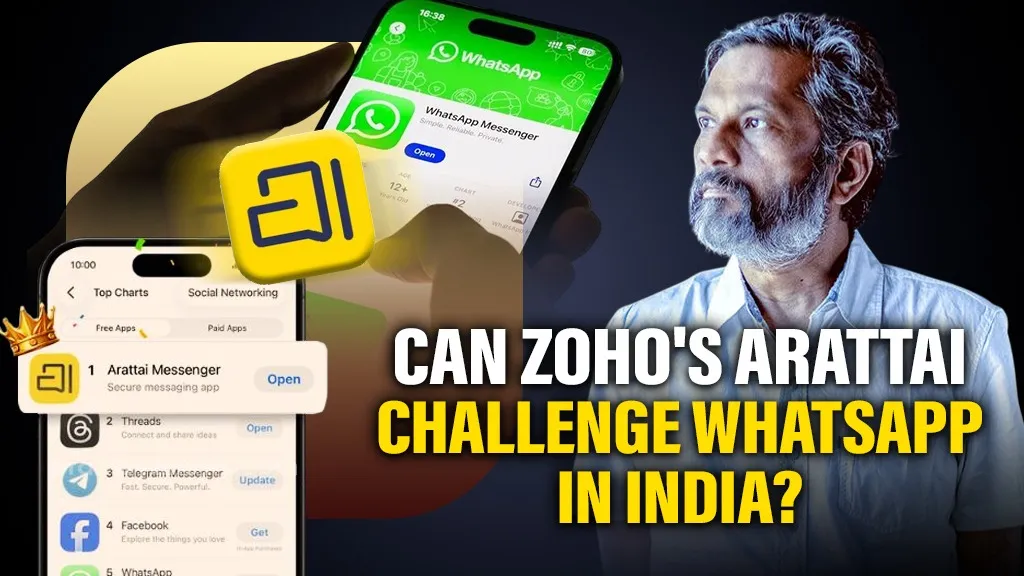

Zoho's Arattai Challenges WhatsApp with an Anti-Monopoly Vision
A homegrown messaging app, Zoho's Arattai, is experiencing an explosive surge in popularity across India, positioning itself as the first serious domestic challenger to the dominance of Meta's WhatsApp. Fueled by a powerful "Made in India" narrative and a firm commitment to user privacy, the app's rapid growth is being driven by a clear and disruptive vision articulated by Zoho's founder, Sridhar Vembu he is building an open ecosystem, not another digital monopoly.
A Vision for an Open, Interoperable System
In a direct critique of his global rivals, Vembu has made it clear that Arattai's philosophy is fundamentally different from that of closed platforms like WhatsApp. "These systems need to be interoperable like UPI and email, and not closed like WhatsApp today," he stated. "We do not want to be a monopoly ever."
This vision goes beyond simply creating another chat application. Zoho is actively working to build a federated messaging ecosystem where users can communicate across different platforms seamlessly, much like how email works. To achieve this, Vembu revealed that Zoho has already initiated discussions with iSpirt, the influential think tank that was instrumental in creating the framework for India's revolutionary Unified Payments Interface (UPI), to help standardize and publish open messaging protocols.
The Bedrock of Data Sovereignty and Trust
At the heart of Arattai's appeal is its unwavering commitment to data privacy and sovereignty. Vembu has emphatically stated that all Zoho products are built in India and, crucially, that all Indian customer data is hosted exclusively on servers within the country. The company deliberately avoids using global cloud giants like AWS, Azure, or Google Cloud, instead running its services on its own infrastructure.
Arattai's user data is currently hosted across a network of data centers in Mumbai, Delhi, and Chennai, with plans for further expansion. This "Made in India, Made for the World" approach directly addresses the growing public concern over how large international tech companies handle user data, a key vulnerability for WhatsApp, which has faced scrutiny for its data-sharing practices with its parent company, Meta.
Capitalizing on a Market Need
While Arattai (a Tamil word meaning "casual chat") has been available since 2021, its recent meteoric rise, which has seen daily sign-ups increase by a factor of 100x, is being driven by a market hungry for a trustworthy alternative. With over 500 million users in India, WhatsApp's dominance has been near-absolute, but its integration into the wider Meta ecosystem has left many users searching for an independent platform. By promising an open, secure, and India-hosted service free from monopolistic behavior, Arattai has successfully tapped into this sentiment, emerging as the most promising challenger to date.
Highlights of the Arattai Strategy
Homegrown Challenger: Zoho's messaging app, Arattai, is experiencing a massive surge in popularity in India, positioning itself as a major domestic alternative to WhatsApp.
Anti-Monopoly Stance: Founder Sridhar Vembu has explicitly stated the goal is not to create another monopoly but to build an open, interoperable ecosystem similar to email or UPI.
Data Sovereignty: A core promise is that all Indian user data is hosted exclusively on servers within India, not on global cloud platforms.
Capitalizing on Privacy Concerns: Arattai's rise is fueled by growing user demand for a trustworthy platform amid ongoing concerns about WhatsApp's data-sharing practices with Meta.